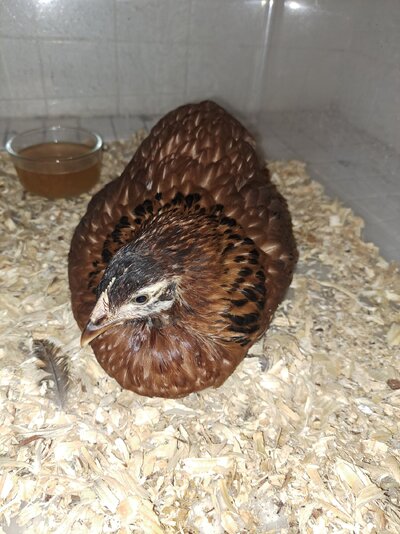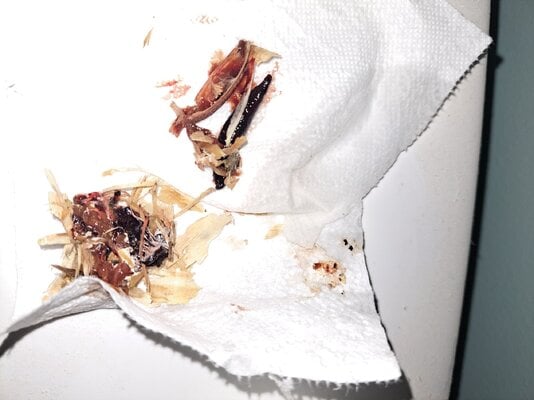ChickenChick889
In the Brooder
- Jul 7, 2023
- 25
- 44
- 41
Hi! I have a 7 week old pullet that I noticed was a bit lethargic this morning, she wasn't eating with the others and wasn't very active. I encouraged her to eat and drink and she did drink a little. However then I noticed her crop was full of liquid, Googled it, learned about sour crop, blockages, etc and ran to the Tractor Supply as soon as they opened with the intention of getting whatever sounded like it might help a sick chicken. I got some Nutra-drench, electrolytes and probiotic powders, brought her in the house, and offered her some water with a small amount of Epsom salts, ACV, and nutri drench, electrolytes and probiotics and have been massaging her crop several times throughout the day and she has drank some of the water when I dip her beak. I dont have food out for her since it sounds like you shouldn't feed them for 12-24 hours with a sour/slow crop. She is very mellow although standing on her own 2 legs often. When I handle her, her wings are a bit droopy, and when I massage her crop she closes her eyes and lays down and then I worry that she isn't doing well at all, but then when I check in on her she is standing, so she may just enjoy the massage. I used a dropper to make sure she was taking in some of the liquid, and she has now pooped 3 times which is how I discovered she ate atleast 2 small slugs, (although after looking again, is it possible they are large/fat parasites? ~half inch in length. I have definitely seen slugs around the coop so very possibly slugs) and has bloody mucousy poo. More Googling lead me to believe she may have worms and/or Coccidiosis and that her crop being full of liquid is a side effect of that and not the main issue. I sent my husband out for some Corid and plan to start treating her and the other chickens as soon as he gets back with that but just wanted to get other peoples opinions who have more experience to make sure I'm on the right track. How long should it take for her to get an appetite back, and should I offer her food tonight or wait until tomorrow? Thank you for any help you can offer!
Attachments
Last edited:







 and to now run into a scare, I want to make sure I'm doing everything I'm supposed to be doing to keep them healthy.
and to now run into a scare, I want to make sure I'm doing everything I'm supposed to be doing to keep them healthy.